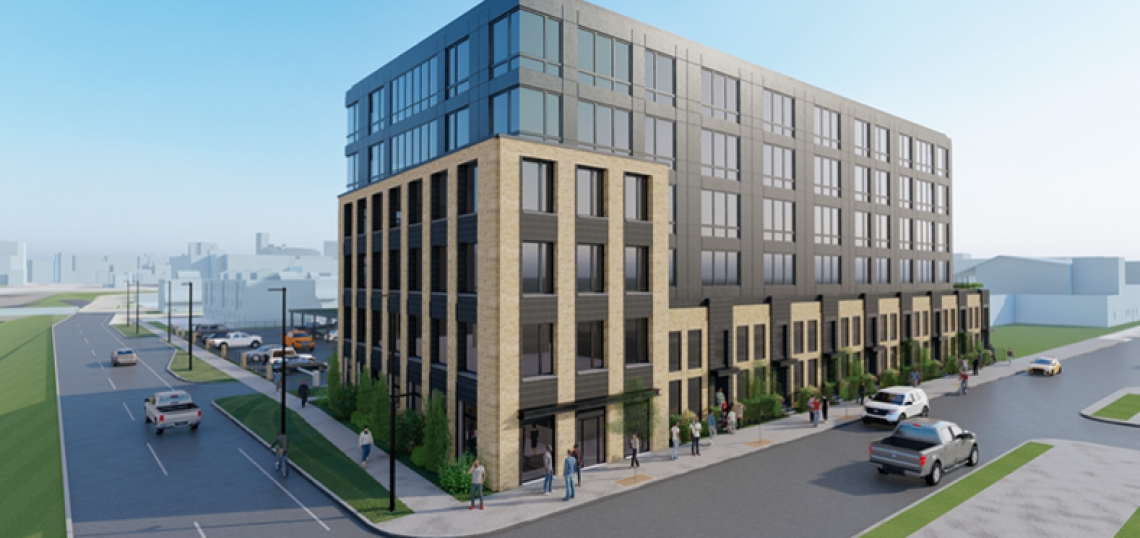Detroit has been awarded a $30 million grant from the U.S. Department of Housing and Urban Development (HUD) Choice Neighborhoods program. The grant will go toward affordable housing developments in Corktown and North Corktown.
Corktown will now see more than $200 million invested in 840 new units of housing completed over the next six years, with 504 units offered at least at 60 percent of the Area Median Income (AMI).
Only 20 percent of the units in these developments will go for market rate. The rest of the units (both rental and for sale) are broken down as:
- 40 percent for households earning between 30 and 80 percent AMI; or no more than $50,000 for a two-person household.
- 20 percent for households making up to 30 percent AMI, meaning no more than $19,000 per year for a two-person household.
- 20 percent for households earning 80 to 120 percent AMI, or no more than $76,000 based on a two-person household.
This plan focuses on three developments:
- Clement Kern Gardens, an affordable housing development at Bagley and Rosa Parks, will be rebuilt. The site currently has 87 townhouses, and will be rebuilt with 350 units. Some mixed-income housing will be added in to the new construction. Current residents can choose whether to stay or choose another one of the developments. The development is owned by Detroit-based American Community Developers. Demolition and rebuilding is expected to start in 2023.
- Additional mixed-income housing will be built at the former Tiger Stadium land at the Fisher Service Drive and Cochrane Street, dubbed "Left Field." This will be a $29-million 120-unit development with 48 units of affordable housing ranging from 30 to 80 percent AMI. This site will break ground this summer. (rendering shown above)
- In North Corktown, a 14.6-acre site at site of the former Owen School will see new construction infill housing, a neighborhood service hub, and an outdoor recreation area. (see photo and rendering in gallery above)
The city will lead additional neighborhood improvements, like safer streets, park redevelopments (including an overhaul of Roosevelt Park), green infrastructure, and the creation of a Community Empowerment Center, which will have support services.
“A project of this size can bring an incredible amount of positive change to a neighborhood,” said Julie Schneider, acting director of the Housing & Revitalization Department, “but that change does not have to come at the cost of residents who have called this neighborhood home. We, as a city, have an obligation to protect those residents.”
Extensive development has happened in Corktown over the last few years, largely spurred by Ford's acquisition and redevelopment of Michigan Central Station and additional properties in the neighborhood. Prices have increased drastically in the neighborhood, and this grant is a win to ensure many current residents can stay.
The city partnered with numerous community groups in this effort, including American Community Developers, Ford, Detroit Economic Solutions Corporation, MDOT, and Wayne State University. Neighborhood input was key in the planning for this grant.
This is a highly competitive grant awarded to just five cities this year. Detroit tried for a Choice Neighborhood Implementation Grant in 2016 for the Brewster-Douglass site redevelopment in Brush Park, but was not selected.







